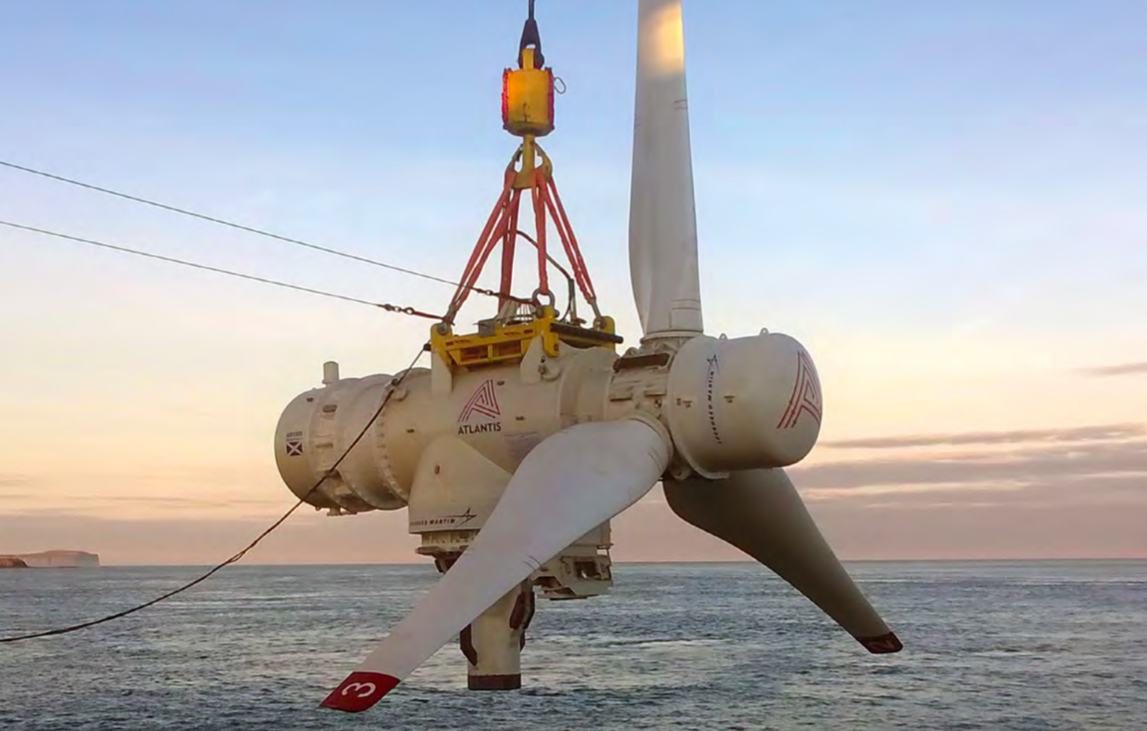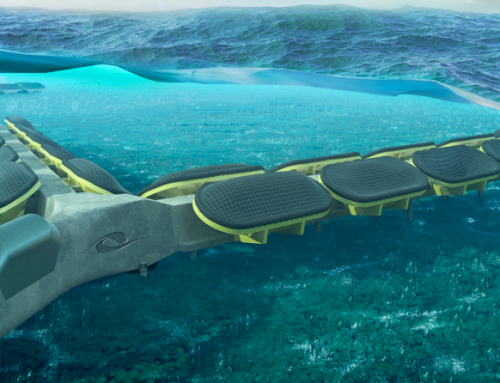By Julian Singer
Simec Atlantis Energy had a tough year in 2021. The company is mainly known for its tidal stream turbines located in the Pentland Firth in the north of Scotland, but in recent years it has tried to diversify into other renewables. In 2017 the company purchased the closed Uskmouth coal-fired power station near Newport in Wales with the intention of converting it to use pellets derived from landfill waste as its input.
Simec argued that this would reduce the amount of landfill and the carbon emissions therefrom, and would consume plastic and other undesirable compounds. However, there was no plan to capture the carbon emissions from the plant, presumably because of the expense and the lack of any ready-made facility to use or store the CO2. Various green organisations objected to the emissions, and the Welsh government was against the scheme. In April 2022 Simec halted development and effectively abandoned the idea.
The company has put a large effort into developing the design for the project as well as testing suitable waste sources and building up expertise. This knowledge can be used elsewhere, for example in Poland and the Czech Republic, where there is interest in moving power stations away from coal to an intermediate input such as waste before they can be replaced by fully renewable power. Emissions would be cut, although far from eliminated.
In the meantime, Simec still own the site of the old power station and the power station itself (a classic and to some an iconic building). It intends to lease out space to other renewable energy projects. The first of these was announced in May 2022 for a 230MW/430 MWh battery storage system to be owned and operated by Quinbrook Infrastructure Partners. It uses Li-ion cells and is due for completion in 2024.

A tidal stream turbine, from www.simecatlantis.com
Unfortunately, the MeyGen project (the tidal stream turbines) has also been having problems, with three out of the four turbines out of the water for much of 2021 for repair. This took longer than expected due to a lack of funds, which was eventually solved by a loan of £2.5 million from Scottish Enterprise. One turbine was redeployed in March 2022 and another in September. The last one is expected to be re-installed in Q1 2023, and will include a new “wet mate” connection system which the company claims will halve the cost of future turbine recoveries.
These problems are not encouraging for the future of tidal stream energy. They reflect exactly what critics have always said: that the environment is too rough for turbines and the maintenance costs too high. The DBEIS, however, has become a supporter. For the latest Contract for Difference auction in July it placed tidal power in a separate category. Among others, MeyGen Phase 2 won a contract at a price of £178.54 per MWh for 15 years. For comparison offshore wind farms won contracts £37.35 per MWh. (In earlier auctions tidal power had to bid against wind power and lost easily.) Phase 2 will add 28MW to the 6MW already installed, small compared with new offshore wind farms.
The financial performance reflects the problems. Revenue fell from $82.8m in 2020 to £16.7m in 2021 increasing the loss after tax from £19.4m to £74.1m. However much of this loss is from writing off the value of the Uskmouth Power Station. In the first half of 2022 revenue was still low at £3.4m (first half 2021: £5.9m) but the loss was down at £8.6m (first half 2021: £11.7m).
Simec has not chosen an easy path. The Chairman, Duncan Black, is emphatic that Simec is “..a developer of innovative sustainable alternative energy solutions” and is not interested in commoditised projects such as wind and solar. Promoters of renewable energy might feel that it is worth exploring the commerciality of tidal stream energy, but investors might be less enthusiastic. The share price stands at 1.7 pence, somewhat above its low of 1.132p in February.



